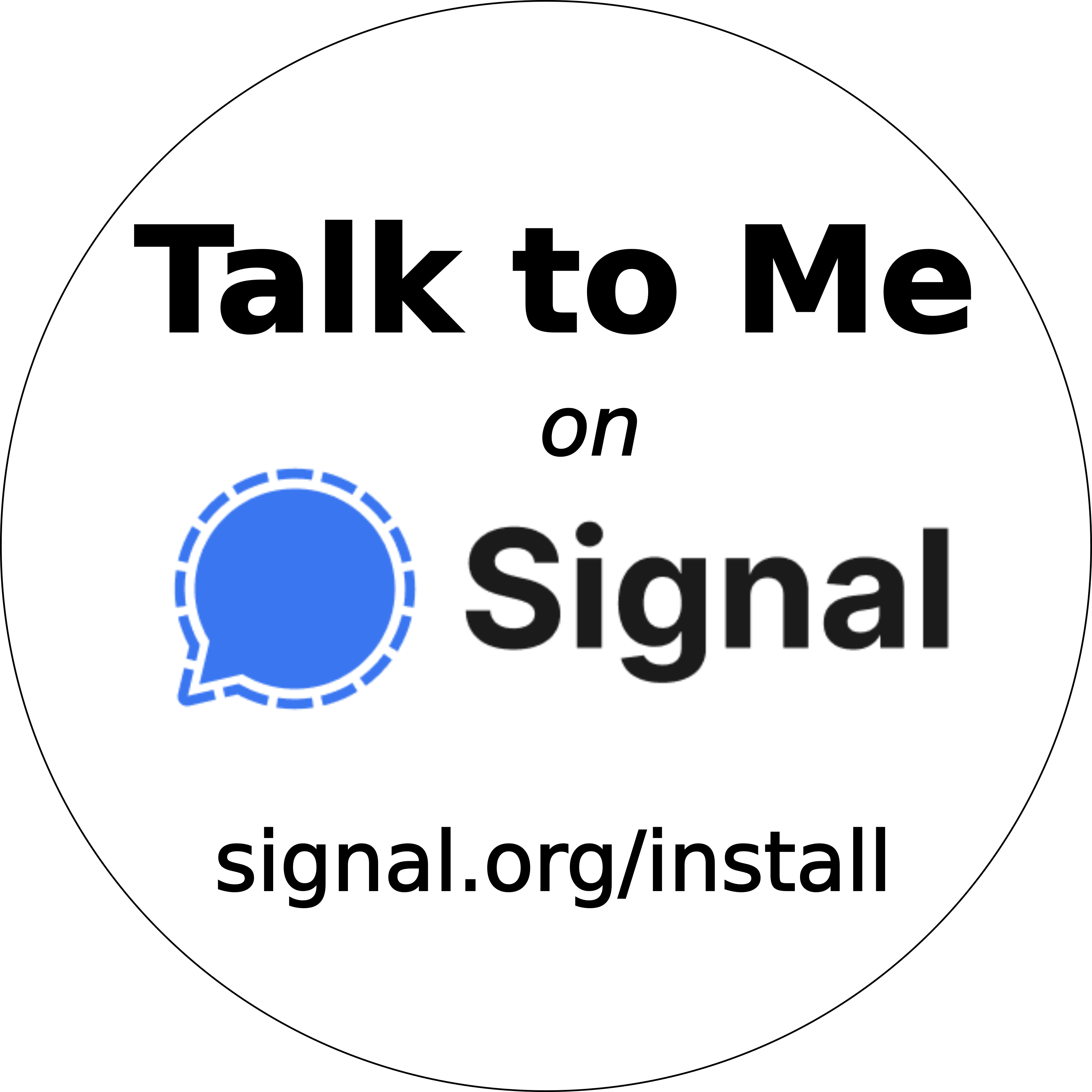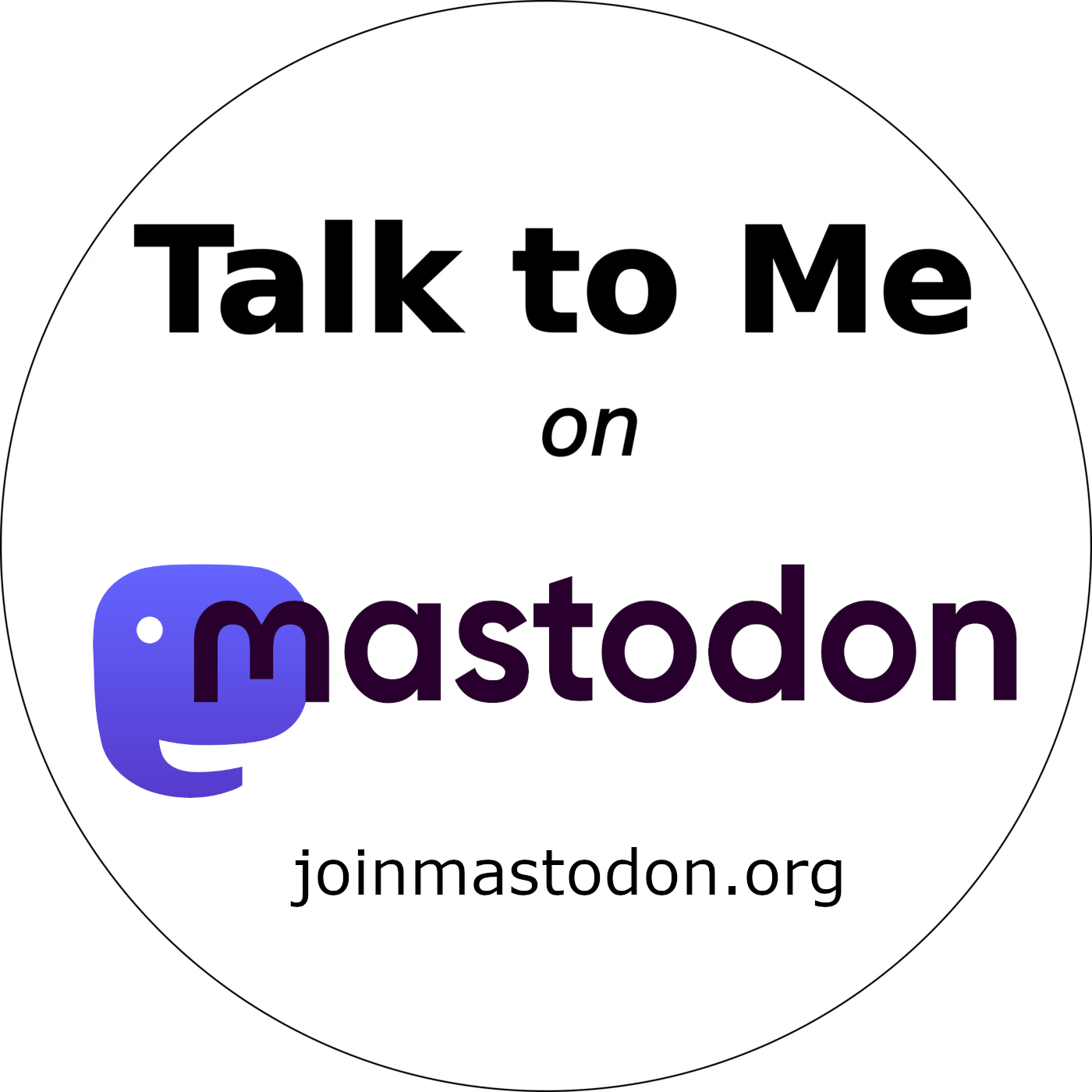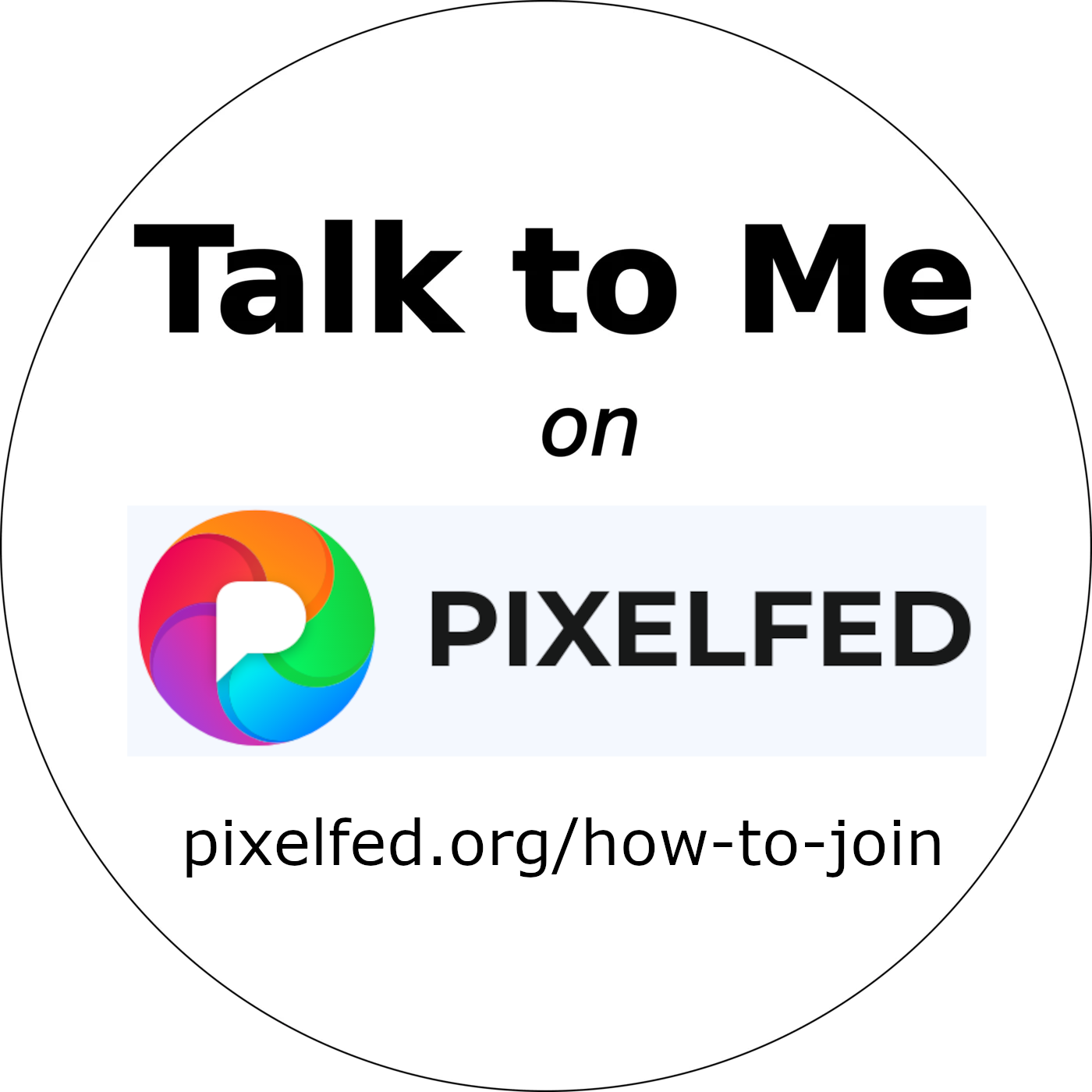How to leave Instagram without leaving your friends. An introduction to the Fediverse.
This article was originally written in English. If you would rather read it in Dutch, read it here.
Meta is fucked
We’re in the age of the algorithmic internet (Lu, n.d.). For the average user, almost every aspect of the internet is decided by personalized algorightms.
If a right leaning person searches for “gaza”, wildly different results will appear compared to a left leaning person. Or, say, if you live in Israel vs. the Arab world (Security in Context, 2023; Amnesty International, 2023). Search results are tailored to each and every person, algorithms know exactly what to show you to keep you engaged (and addicted), so that they can keep serving you targeted ads. If you look at it like this, companies such as Meta and Google, are literally milking you out of your time and energy for their monetary gain. The more targeted the ads are, the more they get paid, so these companies are incentivised to collect as much personal data as possible, and to keep you on their platform as long as possible to show as many ads as they can.
But, this also creates a much bigger problem; the content you are served is presented as having no political bias. These algorithms keep serving us content that reinforces our world view, and makes it appear as if any other view is non-existant. Every single one of us has their own internet, specifically tailored for your views and opinions. We all live in our own filter bubble (Pariser, 2011).
Meta has incited genocide in Myanmar (Zaleznik, 2021; Amnesty International, 2022; Amnesty International, 2022). Meta has caused major interference in elections (Talbot, 2012; Rosenberg et al., 2018). Meta has done an outright blackout and “shadowbanning” of Palestinian content (Amnesty International, 2023). And more recently, Meta is radically changing its policies and embracing Donald Trump by abolishing its fact-checking program, eliminating Diversity, Equity and Inclusivity initiatives, and replacing its former liberal-leaning policy head Nick Clegg (Nix & Dwoskin, 2025). Now, Meta lets users call women ‘property’ and queer people ‘mentally ill’ on their platforms (Yeo, 2025).
And that’s only the tip of the iceberg of all of Meta’s scandals.
It’s clear; we need to stop using Meta products. But how can we do that? Removing Instagram, and especially removing your account, can feel like cutting your social ties with all your friends, it can almost feel like you’re moving to Antarctica; socially isolated.
But don’t you worry! There are alternatives; alternatives that don’t exploit its users for their own financial gain, alternatives that don’t collect every detail of your personal information, alternatives that aren’t designed to be addictive, and designed to be actually social.
And by slowly transitioning to these platforms, we can bring our social networks with us. Usage of such platforms need to spread slowly but surely. It takes time to convince people, and by being one of the first to do so, you can trigger a slow revolution.
This blog post aims to inform users about the situation around Meta software, and present concrete and accesible ways to transition away from Meta products for the average user. This means I’m condensing a lot of information here, information that might be essential for some. See my bibliography and also the ‘Further Reading’ section, if you feel this might be the case.
How can I transition away from Meta? Concrete steps you can take today!
There are most likely only two (or three) Meta products you are using right now; WhatsApp and Instagram (+FaceBook).
I’ll present two alternatives, without getting into the nitty-gritty aspects.
In my opinion, it’s impossible to transition to another platform instantaniously. You can’t just leave Instagram or WhatsApp today. We have an existing social network on these platforms. The only way to make a succesful transition is to transfer slowly, and to take your peers along in the process.
You need a transition period in which you’re active on both platforms, but make it expressively clear that eventually you will transition. Every post you make, every new groupchat you join. You can change your bio, your profile picture, everything!!
Instant Messaging
WhatsApp might be end-to-end encrypted (meaning Meta can’t read your messages), but they can still see who you text, how often and when. They also track your purchase history, financial data, ID, and terrifyingly, much, much, more.
Signal
However, starting your transition is easy! Install Signal! Signal is fully end-to-end encrypted, so no-one can see your texts, and they track absolutely 0 information about you. And there’s even a desktop app!
But, the tough part is to get people to transition with you. Even if you’re convinced you need to move, it won’t work if there’s nobody to talk to on Signal. Here’s a couple tips:
- If you (want to) allow Signal access to your contacts, you can see which of your contacts are already on the app. If you give permission for your contacts, Signal won’t be able to see them
- Send articles like this to your friends, convince them to move over to Signal. Friends that already have the app downloaded are the easiest place to start!
- Propose to move over groupchats, such as one for you class, to move to Signal
- Switch WhatsApp to Signal on your phone’s homescreen
- Change your profile picture on WhatsApp to something like this, courtesy of Reddit user /u/agnibho.

Telegram is also another alternative, but less appealing due to only a part of its communication being encrypted.
Social Media
The Fediverse is the best alternative to social media we have today. My novice-friendly explanation of the Fediverse would be that it is a big network of interconnected social media platforms, the majority of which are free and open source. You may have heard of Mastodon, PixelFed or PeerTube. These are all part of the Fediverse.
Imagine if Instagram was a country, and all of its users were citizens. Meta gets to decide everything that happens on the platform; what the interface looks like, how the algorithms work, the ads shown, and how much personal data it collects and sells. Its a dictatorship, one in which its citizens are exploited for monetary gain. One that makes its citizens addicted to it like a toxic relationship, where even if you get out of it you want to get back together.
In this imaginary world, the Fediverse is also a country. A country in which people get to make their own provinces (network) and cities (servers). These cities and provinces are interconnected with roads (protocols). Each city gets to decide what happens on their platform and how, such as rules and code of conduct, and the province has more of an impact on how the platform operates (for example, more Twitter style or Instagram style communication). As a user, you get to choose where you want to live, or even start your own provinces and cities. And, as a user, you still are able to communicate with everyone from other cities and provinces. Even if certain provinces or cities dissapear, it is still a huge interconnected network; its decentralized.
For example, I’m a user on the server kolektiva.social (city), on the Mastodon social media network Mastodon (province). kolektiva.social is “an anti-colonial anarchist collective that offers federated social media to anarchist collectives and individuals in the fediverse.”. There are thousands of servers, in different languages, different niches, with different rules. You can choose what aligns with your beliefs, and you can decide to move at anytime.
Making your account
For some servers (cities) it takes a bit of time before you can get your account, a lot of servers manually check incoming users. For today, we want to get you started on the Fediverse, so the links below are the servers (cities) that are the most accesible; you get your account instantly and these servers aren’t politically aligned with any ideology.
For now, the first (and only) choice you have to make is what kind of social media network (province) you are looking for.
- Mastodon.social - Closer to Twitter-style short text based social media
- Pixelfed.social - Closer to Instagram-style image based social media
There’s also apps available on the App/Play stores.
You can move servers (cities) later on, with no data loss. Choose the server (city) where you want to stay long term when you’re more comfortable with the platform. And no need for FOMO, you can interact with Pixelfed from Mastodon and vice-versa!
Setup your profile however you like, and start following people!
My account address is “[email protected]”, try to find me :)
When sharing your account, you always need your username@server, this is because, in the same imaginary world, your message would need to be delivered to the correct city! Try to think of it like email (in fact, the whole thing is very comparable to email).
Here’s some Fediverse specific tips on taking your peers with you:
- Talk about it!
- Make it clear you’re leaving; add a caption in every post that you’re leaving, make a post announcing your leave, put it in your bio!
- Switch Instagram/FaceBook to your Fediverse app on your phone’s homescreen
- Change your profile picture
I tried making some profile pictures to put on your Instagram based on the Signal one above, but I really need to work on my GIMP skills…


Transitioning is a process
The way I see it, you can’t just decide to stop using Instagram and Whatsapp today, and expect your transition to go well. We need to inform our peers, and take them with us in this transition; that’s what this article is supposed to help in.
We need to make it extremely clear that we are transitioning away. Maybe it triggers others into transitioning with you. And if not, it is still something they will see, the ‘norm’ of social media will be slightly moved to one of a better and healthy internet. This is, in my eyes, huge.
Keep using Meta services for a bit, but with the attached profile pictures. Imagine how many people will see this and stand still for a second. Every post, every story, every message you send, and people will see that lovely profile picture and caption reading out how you are against Meta’s practises and will be moving away.
Further transitioning
Now, you’ve been on the Fediverse for a while, and want to start looking at different servers (cities) to be on, different clients (apps) to use to access social media. Here are a couple guides to dive in further:
- .zip newsletter about leaving Meta
- How to get started on Mastodon / The Fediverse
- fediverseresources.com - Extensive list of resources about the Fediverse
- fedi.garden - An easy and stress-free way of choosing a Fediverse server
- Transferring your Mastodon account to another server
- thehmm.nl - Mastodon explained
Some of resources I found through the varia fediverse meetup, more on it below!
Thoughts on algorithms
As Eli Pariser puts so elegantly in his 2011 book “The Filter Bubble: What the Internet Is Hiding from You”:
We are predisposed to respond to a pretty narrow set of stimuli—if a piece of news is about sex, power, gossip, violence, celebrity, or humor, we are likely to read it first. This is the content that most easily makes it into the filter bubble. It’s easy to push “Like” and increase the visibility of a friend’s post about finishing a marathon or an instructional article about how to make onion soup. It’s harder to push the “Like” button on an article titled, “Darfur sees bloodiest month in two years.” In a personalized world, important but complex or unpleasant issues—the rising prison population, for example, or homelessness—are less likely to come to our attention at all.
As a consumer, it’s hard to argue with blotting out the irrelevant and unlikable. But what is good for consumers is not necessarily good for citizens. What I seem to like may not be what I actually want, let alone what I need to know to be an informed member of my community or country. —Eli Pariser
As long as we keep consuming as much media through personalized algorithms, it’s hard to be an informed citizen. It’s bizarre how many aspects of the internet are personalized; your social media, your spotify, your netflix, your (google) search.
Furthermore, the media we consume on these platforms also influences the information it conveys. As Marshall McLuhan said: ‘The medium is the message”. Short-form content such as TikTok and X (Twitter) forces information to be compressed and appealing, for it to do well on the platform.
Please think about this, and develop awareness of the media you consume, what kind of media it is, and why it was served to you.
Whilst you’re at it, de-Google your life!
Google is just as much a toxin to the internet and our lives as Meta is. The most impactful first steps are to:
- Replace your web browser. For desktop, Firefox or Orion are very good alternatives. On your phone, the DuckDuckGo browser is also a solid choice.
- Even if you have, say, Firefox as your browser, your internet searches will still be conducted with the Google search engine. Good alternatives for this are DuckDuckGo or Startpage. How to change your search engine on Firefox
- Get uBlock Origin on your browser to block further tracking and targeted ads.
But Google is EVERYWHERE. These are just the first few steps of your stroll to Melbourne. There is still Google Workspace (Docs, Sheets etc.), Gmail, Google Drive, YouTube, default Android, Google Maps, Google Translate, and the list goes on infinitely. If you have time, please check out the following resources.
A more detailed explanation of why and how you should deGoogle your life: https://androides.nl/degoogle-guide/#mcetoc_1hnoa3an119q
For an extensive open-source list of alternatives to products such as Google Docs, YouTube, etc.: https://tycrek.github.io/degoogle/
Privacy Guides: https://www.privacyguides.org/en/
Special thanks
I got properly introducted to the Fediverse at varia. I can’t express how thankful I am to all the people organising the event.
Similar thanks to the .zip newsletter about their transition away from Meta. It served as major inspiration for this writeup.
Further Reading
Gathered from the varia Fediverse get together:
Resources I love, found thanks to Dasha Ilina:
Books:
- The Filter Bubble: What the Internet Is Hiding from You - Eli Pariser (2011)
- The Age of Surveillance Capitalism: The Fight for a Human Future at the New Frontier of Power - Shoshana Zuboff (2019)
- Superstorm: Politics and Design in the Age of Information - Noemi Biasetton (2024)
- Weapons of Math Destruction - Cathy O’Neil (2016)
- The Code of Capital: How the Law Creates Wealth and Inequality - Katharina Pistor (2019)
- Artificial Intelligence: A Guide for Thinking Humans - Melanie Mitchell (2019)
- Reclaiming Conversation: The Power of Talk in a Digital Age - Sherry Turkle (2015)
- The Spectacle 2.0 Reading Debord in the Context of Digital Capitalism - Marco Briziarelli and Emiliana Armano (2017)
Obviously there’s a lot of relevant research papers, these are just some of my favorites:
References
Enjoy Reading This Article?
Here are some more articles you might like to read next: